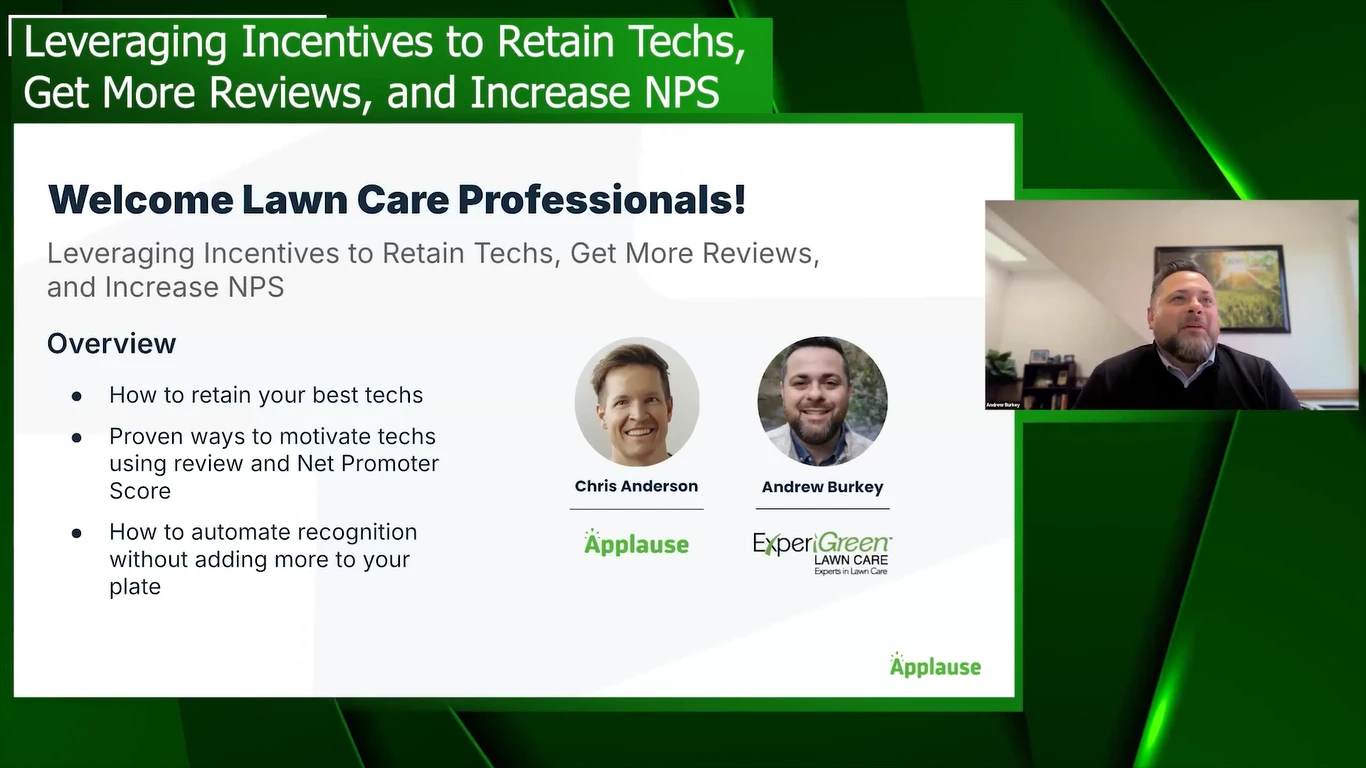Editors’ note – Whatever color bumper sticker you have, the election next month will have an impact on you and your business. We’re not in the overcrowded business of political predictions, but this month, we offer you some insight into what the elections for president, Congress and in state capitols across the country mean for the green industry as a whole. We polled landscapers and LCOs to get a bead on their top concerns, and sat down with the industry’s chief lobbyists for their perspective.

Issue breakdown
We asked political experts to break down key green industry issues in this fall’s elections.
By Jason Stahl
What can small businesses expect over the next four years if Barack Obama is reelected or if Republican Mitt Romney takes over as the company’s new leader? What about what happens in Congress? We ask political experts on the impact the elections in November will have on issues important to the green industry.
Overall Results. Bob Redding offers a few predictions based on his long career as a lobbyist and Washington, D.C., insider. He believes Congress will stay Republican after the election – even though he believes the difference in the number of Republicans vs. Democrats might get a little smaller. And if Romney is elected, he will support the pro-small business tax agenda Congress will push. This legislation, Redding says, will have a much better chance of becoming law, but the Senate poses a potential roadblock.
 “Even with a Republican Senate, you can’t move legislation without 60 Republican Senators,” says Redding. “It takes a full 60 votes to stop the debate. If you had closer to 60, you would have some Democrats flip over and support the Republican majority on the small business tax issue. But you would need the full 60 votes, and if you have that and the legislation gets to (Romney), I believe he would sign it.”
“Even with a Republican Senate, you can’t move legislation without 60 Republican Senators,” says Redding. “It takes a full 60 votes to stop the debate. If you had closer to 60, you would have some Democrats flip over and support the Republican majority on the small business tax issue. But you would need the full 60 votes, and if you have that and the legislation gets to (Romney), I believe he would sign it.”
If Obama is reelected, Redding says it would depend on the tax-reform package that the House and Senate would send him as to whether he would sign it or not.
“The barriers to date have prevented it from moving out of the House, let alone the House and Senate, so I don’t see that coming together even under another four years,” Redding says.
OSHA. Under a Romney administration, people would see a less aggressive OSHA (Occupational Safety and Health Administration) on some of the issues that particular federal agency has been looking at, Redding speculates. Under a second term with Obama, he says people would see more worker safety initiatives and an agenda even more heightened than the last four years.
EPA. Most people feel that the majority of businesses favor a less aggressive EPA, and they would be right. But believe it or not, some industries favor a more aggressive EPA, especially if it means putting less qualified competitors out of business due to compliance issues. And those industries feel that, under the Obama administration to date, the EPA has not been as aggressive as it should be. Under Romney, Redding says that non-aggressive EPA stance would continue.
Tax Reform. Redding says that the thing that has caused the biggest hurt to the Obama administration is the little amount of tax reform that has been undertaken. “We haven’t seen any help in that area to amount to anything,” he says. Therefore, he says a change in administrations could impact the economy in a positive way if certain laws can be moved forward.
 Molly Brogan, vice president of public affairs for the National Small Business Association (NSBA), sees things fairly similarly to the way Redding sees them as far as what might be in store for small businesses over the next four years if a new administration comes in. Like Redding, she sees taxes as a major issue in the next election.
Molly Brogan, vice president of public affairs for the National Small Business Association (NSBA), sees things fairly similarly to the way Redding sees them as far as what might be in store for small businesses over the next four years if a new administration comes in. Like Redding, she sees taxes as a major issue in the next election.
“Taxes are a growing concern as far as the financial burden they carry and the complexity they add to running a small business,” says Brogan, citing a 2012 survey the NSBA conducted before tax day that indicated that the administrative burden of taxes is outpacing the financial burden. “I wouldn’t say either Republicans or Democrats have an overwhelming market share in terms of trying to ease the complexity of taxes.”
Expanding on the Republican viewpoint on business, Brogan says this political party typically has a “get out of the way” mentality, favoring lower taxes and fewer regulations.
Democrats, on the other hand, are more in favor of “problematic-type help” for small businesses, says Brogan, for example making sure that access to capital is readily available.
“That’s good, but it’s an altogether different perspective than the Republicans have,” says Brogan.
Small Business. Examining both Obama and Romney’s agendas, Brogan says both have been shortsighted on taxes on small businesses. Romney, she says, has talked about reducing marginal rates and corporate rates, but if he wins, he will also need to focus on cutting individual rates for small businesses. The reason is because the majority (83 percent) of small businesses pay their taxes as “pass-through entities,” meaning they pay them as their own personal income. Therefore, they pay the individual tax rate, not the corporate rate.
“The way (Romney’s) tax structure is set up would actually give small business a slightly higher tax bracket than what most large corporations have,” says Brogan. “Both (Romney and Obama) have talked about reforming the tax system and simplifying it, and we think that’s good, but you can’t do one without the other without putting small businesses at a significant disadvantage.”
Brogan concedes, however, that Romney has been “pretty good” with taxes, and there are select areas where Obama has been good, too, particularly R&D credits and expanding and increasing some of the expensing provisions to try to enhance the cash-in-hand that small businesses get to keep.
Healthcare. Brogan says Romney and Obama have very different platforms on healthcare. “Our No. 1 goal is to keep healthcare costs down, something we don’t think the Affordable Care Act will do,” she says. “That’s what has to happen. And I don’t know if we’ve seen significantly aggressive plans from either camp on how to keep costs down.”
As far as regulations go, Brogan says Obama has been relatively outspoken on calling on his agencies to sort out the regulations they feel they can get rid of or streamline, which the NSBA thinks is positive. Romney, too, has talked about the need to ease regulations on businesses, so Brogan says both he and Obama can offer positive things in this arena.
When it comes to the environment, there appears to be a general understanding that Democrats favor more stringent rules than Republicans. Brogan says if Obama is reelected, there will continue to be more oversight of environmental initiatives. “In terms of preventing exemptions, I think Democrats are certainly willing to do that, but there is less leeway under them in terms of getting any kind of small business exemption,” Brogan says.
Jason Stahl is a Cleveland-based freelance writer.
PLANET focuses on immigration and healthcare
 The most important thing is to encourage all company employees to register and to vote. It is hard to complain about things we don’t like as an industry if we aren’t taking action to change them. Landscape professionals should identify which issues are most important to their business and then look at the voting record and positions of the candidates and vote accordingly. Some of the key issues we focus on are H-2B and immigration reform, government over-regulation and healthcare reform.
The most important thing is to encourage all company employees to register and to vote. It is hard to complain about things we don’t like as an industry if we aren’t taking action to change them. Landscape professionals should identify which issues are most important to their business and then look at the voting record and positions of the candidates and vote accordingly. Some of the key issues we focus on are H-2B and immigration reform, government over-regulation and healthcare reform.
The upcoming election is very important to business and the overall economy. With regards to immigration, we expect to continue to see a great deal of enforcement against employers in the workplace. We could see a reinvigorated debate around undocumented immigrants. There is a chance that comprehensive immigration reform could happen with a new Congress, but the best chance would be early on in the next term.
The recent Supreme Court decision on the Patient Protection and Affordable Care Act guarantees that healthcare will be a fierce election issue come November. Governor Romney and Republican leaders will continue to advocate for a full repeal of the law, which could complicate an already confusing situation.
– Sabeena Hickman, CEO, PLANET
Key questions to ask in the voting booth
 It’s not just every four years we think about elections and how they impact our industry and individual businesses. I think about this daily because it’s this often that our elected national leaders in Washington can support, improve business conditions, or damage our livelihoods. The president and his administration do not create legislation, but they have a tremendous impact on us through the regulatory process. Therefore, when I go to my polling place I’ll be considering the following about the two presidential candidates:
It’s not just every four years we think about elections and how they impact our industry and individual businesses. I think about this daily because it’s this often that our elected national leaders in Washington can support, improve business conditions, or damage our livelihoods. The president and his administration do not create legislation, but they have a tremendous impact on us through the regulatory process. Therefore, when I go to my polling place I’ll be considering the following about the two presidential candidates:
What have they expressed about their support for us? Are they talking about the Farm Bill and its support of horticulture? What’s in their platform?
What are they saying about immigrant workers? Are they proposing a solution that will help our business get the labor they need to survive?
What’s their greater vision for environmental protection and the related policies? How will they impact our industry – positively and negatively?
What about small businesses? Will their administration seek solutions to help small businesses grow and succeed? What about larger employers? Our biggest companies also need consideration for success.
Are they supportive of investing in higher education? Research and many of our future leaders will be graduates of land-grant institutions. And many will come from vocational schools. Will investment in post-secondary education be a priority?
We are a very diverse industry and we have varied interests and needs. But there are core issues that impact all of us and what I have shared is just the tip of the iceberg. I would never advise anyone on for whom they should vote. But I do encourage everyone to consider the long-lasting impact a president can have on our industry and your business through his constitutional authority and leadership.
– Michael V. Geary, CEO, OFA
Remember the economic impact of your industry
 Like any election, this election has the potential to have major implications for our industry. It’s as important as any election that we’ve ever had.
Like any election, this election has the potential to have major implications for our industry. It’s as important as any election that we’ve ever had.
Regardless of where people are or what their perspective is on the impact of the election, on what might be the outcome, you’ve got to go and vote. The big thing for our industry is that you make your voices heard. There’s opportunity for people to get disenfranchised in every election, and if there was ever an election where you’ve got to stay tough and think about what’s important to our industry and you’ve got to make your voice heard at the polls, it’s this election.
I don’t think it’s solely focused on who’s running for president. There’s a real opportunity for significant change in Congress here in Washington as well as for state capitols. There are some states that have some enormous potential for turnover. California is an example. The way their term limits are written, there’s a potential for close to 50 percent of those legislators coming in next year to be brand new.
We have an enormous voice across the industry that RISE represents. If we all go to the polls, that’s a big constituency. We represent an enormous block of people that are voting on behalf of their business, and we do have the ability to impact change. So we’ve got to take that opportunity.
When I go to the polls, I ask myself, are they the kind of people that have respect for the role of business in this country? They don’t have to agree with me on every issue, but are they the kind of people we can have a thoughtful conversation with, that are going to understand that our members, the people we represent, are vital to the American economy, that they are enormous employers?
We may disagree on exactly how to get there, and that’s OK, but is there an appreciation for our industry and the value that we bring?
– Aaron Hobbs, president, RISE

Explore the October 2012 Issue
Check out more from this issue and find your next story to read.
Latest from Lawn & Landscape
- Grow your business with mosquito control
- LandCare adds 2 branches in SoCal, promotes Aleman to branch manager
- Spray them away
- PERC helps debut propane direct-injection fuel system at ACT Expo 2025
- Retargeting Ads – A Secret Weapon for Growing Your Lawn Care Business
- Leading a growing company
- Project EverGreen launches Clean Air Calculator
- Rain Bird acquires smart lawn care company OtO from Toronto





